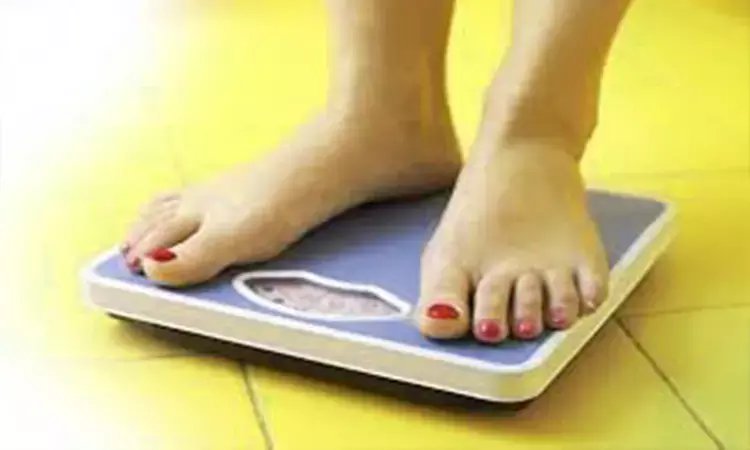- Home
- Medical news & Guidelines
- Anesthesiology
- Cardiology and CTVS
- Critical Care
- Dentistry
- Dermatology
- Diabetes and Endocrinology
- ENT
- Gastroenterology
- Medicine
- Nephrology
- Neurology
- Obstretics-Gynaecology
- Oncology
- Ophthalmology
- Orthopaedics
- Pediatrics-Neonatology
- Psychiatry
- Pulmonology
- Radiology
- Surgery
- Urology
- Laboratory Medicine
- Diet
- Nursing
- Paramedical
- Physiotherapy
- Health news
- Fact Check
- Bone Health Fact Check
- Brain Health Fact Check
- Cancer Related Fact Check
- Child Care Fact Check
- Dental and oral health fact check
- Diabetes and metabolic health fact check
- Diet and Nutrition Fact Check
- Eye and ENT Care Fact Check
- Fitness fact check
- Gut health fact check
- Heart health fact check
- Kidney health fact check
- Medical education fact check
- Men's health fact check
- Respiratory fact check
- Skin and hair care fact check
- Vaccine and Immunization fact check
- Women's health fact check
- AYUSH
- State News
- Andaman and Nicobar Islands
- Andhra Pradesh
- Arunachal Pradesh
- Assam
- Bihar
- Chandigarh
- Chattisgarh
- Dadra and Nagar Haveli
- Daman and Diu
- Delhi
- Goa
- Gujarat
- Haryana
- Himachal Pradesh
- Jammu & Kashmir
- Jharkhand
- Karnataka
- Kerala
- Ladakh
- Lakshadweep
- Madhya Pradesh
- Maharashtra
- Manipur
- Meghalaya
- Mizoram
- Nagaland
- Odisha
- Puducherry
- Punjab
- Rajasthan
- Sikkim
- Tamil Nadu
- Telangana
- Tripura
- Uttar Pradesh
- Uttrakhand
- West Bengal
- Medical Education
- Industry
Liraglutide may help adolescents with obesity lose weight

WASHINGTON--Researchers have found that liraglutide in conjunction with lifestyle modifications improves weight loss in obese adolescents.The study has been published in the New England Journal of Medicine in conjunction with the Endocrine Society's annual meeting. It will be published in a supplemental issue of the Journal of the Endocrine Society also.
Liraglutide 3.0 mg a glucagon-like peptide-1 (GLP-1) receptor agonist has been approved by the United States Food and Drug Administration (FDA) as an adjunct to a reduced-calorie diet and increased physical activity to help adults with obesity manage their weight.
The results of this clinical trial suggest that liraglutide 3.0 mg given once daily along with lifestyle therapy improves body-mass index (BMI) standard deviation score (BMI SDS) and other measures of BMI and body weight among adolescents with obesity who have had difficulties in managing their weight with lifestyle therapy alone," said study author Aaron S. Kelly, Ph.D., a professor in the Department of Pediatrics and a co-director of the Center for Pediatric Obesity Medicine at the University of Minnesota Medical School in Minneapolis.
Kelly and his colleagues studied adolescents between 12 and 17 years of age with obesity who did not respond to lifestyle therapy. The trial took place at 33 sites in the United States, Mexico, Belgium, Sweden, and the Russian Federation. They investigated changes over time in BMI SDS, which reflects the relative weight to height ratio adjusted for age and sex, and they examined changes from baseline in other weight-related outcomes.
During the 12-week run-in period, all 251 participants received lifestyle therapy that involved counseling in healthy nutrition and physical activity for weight management. Afterwards, 125 participants received subcutaneous liraglutide 3.0 mg (or the highest dose tolerated) once daily and 126 participants received placebo once daily. Participants in both groups continued with lifestyle therapy throughout the 56-week treatment period and the 26-week off-treatment follow-up. In the treatment group, 101 participants remained through week 56 and 99 completed through week 82; in the placebo group, 100 remained through week 56 and 99 completed at week 82.
At week 56, participants who received liraglutide showed significantly reduced BMI SDS and greater improvements in body weight, BMI, waist circumference and other weight-related outcomes compared with those who received placebo.
At week 56, the authors found no significant differences in blood pressure, fasting lipids, fasting plasma glucose or hemoglobin A1c (HbA1c). At week 82, after 26 weeks of drug discontinuation but continued lifestyle therapy, participants who had received liraglutide during the 56-week treatment period had a greater increase in BMI SDS than those in the placebo group. The safety profile of liraglutide was similar to that of adults, with no reported unexpected safety concerns or severe hypoglycemia. The adolescents taking liraglutide reported more gastrointestinal side effects (64.8%) than those taking placebo (36.5%) and few serious adverse events (three versus five events, respectively). Mental health questionnaire results at 52 weeks were similar in both groups, and the authors found no apparent effects on growth or pubertal development.
"Obesity is a serious, chronic, progressive disease affecting around 107.7 million children and adolescents worldwide and is associated with an increased risk of developing other health problems," Kelly said. "Over 70% of children with obesity before puberty maintain obesity as adults. Effective treatment options for adolescents with obesity are limited, and lifestyle therapy, the typical first treatment, often yields suboptimal responses. In adolescents with obesity, we need additional treatment options that we can use along with lifestyle therapy."
NEJM article (Free for 7 days)
Dr Kamal Kant Kohli-MBBS, DTCD- a chest specialist with more than 30 years of practice and a flair for writing clinical articles, Dr Kamal Kant Kohli joined Medical Dialogues as a Chief Editor of Medical News. Besides writing articles, as an editor, he proofreads and verifies all the medical content published on Medical Dialogues including those coming from journals, studies,medical conferences,guidelines etc. Email: drkohli@medicaldialogues.in. Contact no. 011-43720751


